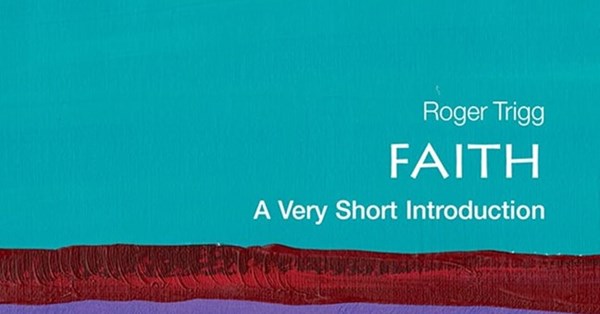FAITH, according to Hebrews 11.1, is “the assurance of things hoped for, the conviction of things unseen”. This definition given to the Greek term pistis is so embedded in Western ideas about what it means to “be religious” that we can easily lose sight of both its novelty and its distinctiveness.
In classical literature, as Roger Trigg here reminds us, the mirrored terms pistis and fidelitas (its Latin equivalent) denoted personal trust and relational steadfastness rather than propositional belief. Moreover, identification of “faith” with “belief” can lead to distortions in perceiving other religious traditions or, as we (perhaps clumsily) term them, “faith communities”.
While all religions involve metaphysical assumptions, Christianity is particular in foregrounding assent to certain doctrines and narratives when defining belonging. For example, the boundaries (internal and external) of Judaism and Islam are alike defined far more by “orthopraxy” — the correct observance of legal norms in daily life — than by confessional statements. The Roman Empire’s official paganism emphasised participation in public ritual, but habitually treated what we would call “orthodoxy” with indifference.
Latterly, under the conditions of modernity, assaults on faith/theism and on the very possibility of objective knowledge have tended to manifest structural interdependence. Thus, the consequence of jettisoning a space for faith, Trigg argues, is inevitably a Nietzschean nihilism in which arguments can be settled only coercively (by acquiring power), not deliberatively (by using reason).
Trigg’s outline of the evolving conceptualisation of faith and his analysis of the friction surrounding its manifestation in today’s public sphere are both accomplished. His discussion of the distinctiveness of Richard Hooker’s proto-Anglican conception of healthy faith as necessarily involving a balance between scripture, reason, and tradition is, however, problematic.
Trigg’s implication that Hooker recovered a reverence for tradition destroyed by the magisterial Reformation is unjustified — as even a cursory glance at the density of Calvin’s citations of Augustine in the Institutes reveals. As Alister McGrath established long ago, the Reformers’ opposition wasn’t to the place of tradition as a resource for scriptural interpretation, but, rather, to claims made for it as a separate source of revelation.
The Revd Alexander Faludy is a freelance journalist based in Budapest.
Faith: A very short introduction
Roger Trigg
OUP £9.99
(978-0-19-284926-7)
Church Times Bookshop £8.99

















